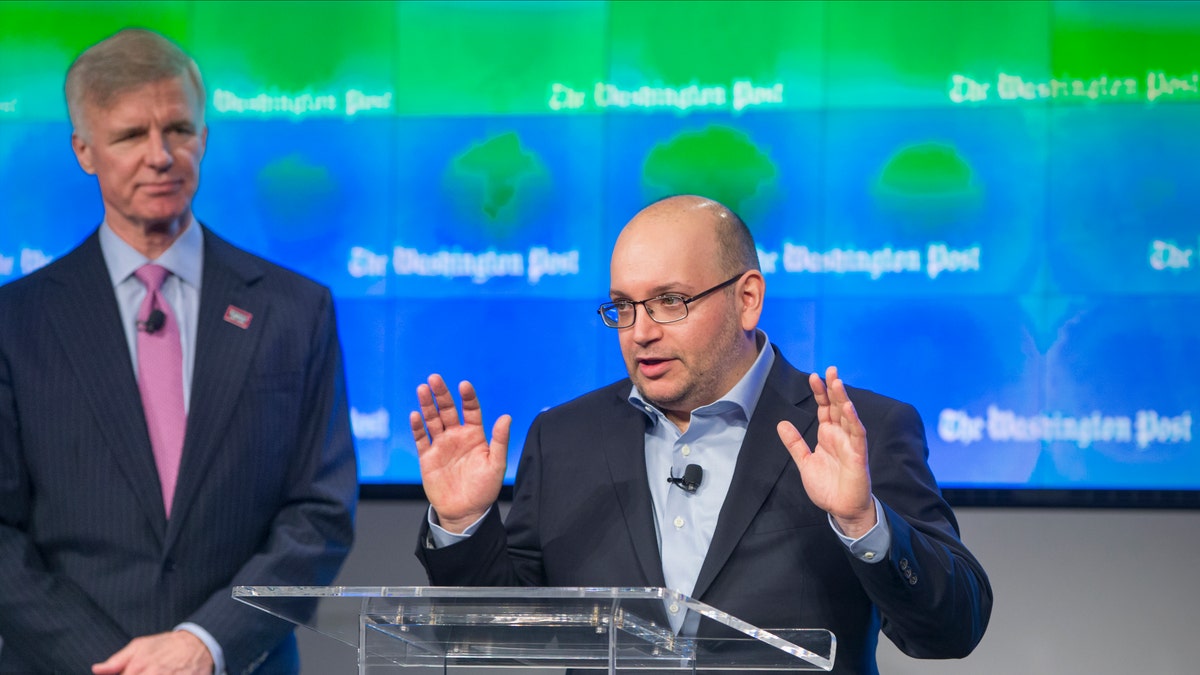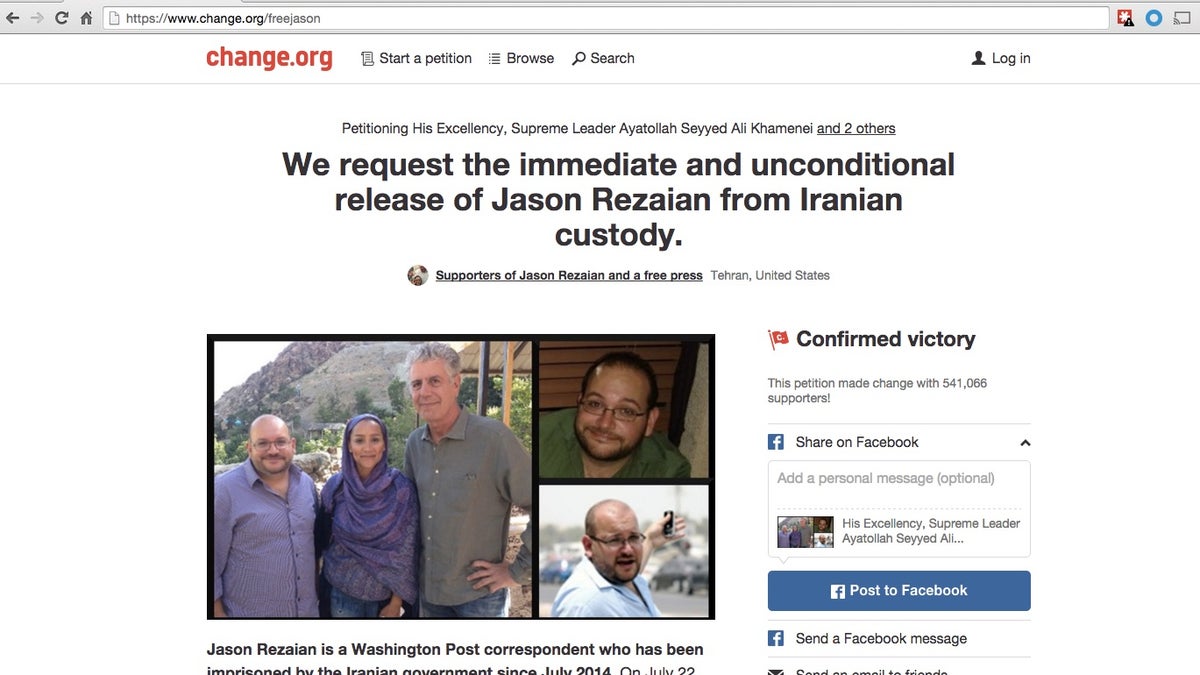
Freed Washington Post reporter Jason Rezaian, center, joined by Post Publisher Frederick Ryan speaks about his release from a Tehran jail in a prisoner swap this month, as he returns to his newspaper for the opening ceremony of the new headquarters of The Washington Post, Thursday, Jan. 28, 2016, in Washington. (AP Photo/J. Scott Applewhite)
Five hundred forty-five days.
That's the number of days that Washington Post correspondent Jason Rezaian spent in prison on what many agree were trumped up charges. Jason spent last week reuniting with his wife, mother, and brother at an American military base in Germany before returning home to the United States on Friday.
It’s undoubtedly been a long journey for the countless number of people involved in the daily fight for Jason’s freedom. Arguably no one fought more tirelessly than Jason’s brother Ali, who put his life on hold and traveled the world for 18 months to try to get him home.
I’ve had the good fortune of spending time with Ali during the last year. We first connected after the Rezaian family started a petition on Change.org that began to gain significant support last January.

From a National Press Club event in March that showcased the growing global support for Jason’s release to Ali’s petition delivery to the Iranian Mission to the U.N. in December, I’m so thrilled that Jason is free and reunited with Ali and his family.
At this time last year, Jason’s imprisonment wasn’t widely known by Americans or others worldwide. Ali’s petition changed that.
While diplomats, advocacy organizations, and Jason’s employer worked to free Jason, Ali was able to employ his own tool: a petition to educate the global community about what had happened to his brother. The petition, which highlighted the family’s despair as a result of Jason’s injustice, inspired and mobilized people from all corners of the globe to take action. It also spurred petitions in other countries, like that of Charles-Antoine Joly (one of Jason’s best friends), who actively campaigned for his release in France.
Soon, handfuls of Washington Post journalists tweeted the petition to encourage public support -- a rare move in the journalism community. The National Press Club called on all of its press members to bring attention to Jason’s case, and Ali’s petition was highlighted at the White House Correspondents Dinner in April, where President Obama spoke of his administration’s commitment to Jason’s release. The increased momentum helped to drive ongoing press coverage of Jason’s case worldwide, and petition signatures grew from tens of thousands to hundreds of thousands.
What soon came together was a full-blown, global #FreeJason campaign, and Ali’s petition became the central organizing place for everyone who was advocating on Jason’s behalf.
Throughout this ordeal, Ali and the many who stood with him kept pushing despite the setbacks. Jason’s secret trial with a hard-line judge, his continued imprisonment despite the Iranian nuclear deal, and his conviction on questionable charges were certainly unsettling developments. Yet at every turn, more people came to sign petition and support the family.
Through the highs and the lows, Ali’s campaign demonstrated the power and promise of online organizing and mobilization by playing a key role in elevating public awareness of Jason’s plight. More than 540,000 people from more than 140 countries had supported Ali’s campaign by the time Jason was released.
At any given time, Ali could tap into this global community, whether to inform them of recent news or ask them to take specific actions, such as a tweet to President Rouhani or a share of the petition with friends and family members to broaden awareness.
There is no question that the diplomatic efforts of the United States, as well as the persistent fight by Washington Post leadership, were the driving forces in securing Jason’s freedom. However, what is clear is that Ali’s petition filled an important gap that had been previously missing this time one year ago: broad public awareness and engagement.
That engagement helped to fuel a larger, global campaign for Jason’s release. It demonstrated to Iranians that people worldwide clearly knew what they were doing and wouldn’t support it. It showed the journalism community that this wasn’t their fight alone, but that many in the public were in solidarity with them. It also comforted the Rezaian family to know that hundreds of thousands of people worldwide -- people who they’ve never met -- stood by them during many dark days.
Petitions on Change.org start and propel conversations at the local, national, and international levels in a way that wouldn’t have been possible even 10 years ago. The fact that Ali’s petition was a cornerstone piece of the work that many individuals and organizations supported speaks to the power that a typical, everyday person can harness to advance their own causes.
On behalf of the more than half a million people who signed the family’s petition: Welcome home, Jason.
